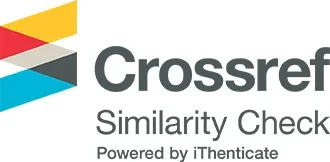دعوة للنشر
إعلان بخصوص فتح باب تقديم البحوث للنشر بالعددين الأول والثاني (لسنة 2025م)
• All research papers, studies, and commentaries on judicial rulings are subject to review by at least two qualified and experienced peer reviewers, with the authors’ identities kept confidential.
• The review process is conducted according to objective criteria (originality, methodology, significance, and clarity). The reviewers’ opinions and recommendations are respected, and the Editor-in-Chief supervises the process to ensure fairness.
• The Editorial Board maintains lists of specialized academic reviewers in various branches of law, selected based on competence, experience, and objectivity. These lists are updated periodically.
• The journal’s administration ensures that submitted manuscripts comply with publication ethics and standards by using plagiarism detection software, and the results are presented to the Editor-in-Chief.
• The Editor-in-Chief assigns the paper to a qualified member of the Editorial Board to assess its suitability for peer review.
• The paper is then referred to at least two reviewers, and a third reviewer may be appointed in case of conflicting opinions.
• The review period ranges from two to three weeks at most. If a reviewer delays, the paper will be reassigned to another reviewer.
• The author must implement the required revisions and highlight them in a different color, accompanied by a report explaining how each comment was addressed. If the author objects to any comments, the matter will be referred to the Editor-in-Chief for a final decision.
• In case a paper is rejected, the author will be notified and may request copies of the reviewers’ reports for reference.
• Whenever possible, the reviewer’s academic rank should be higher than that of the author.
• Authors’ comments on reviewers’ reports are presented to the Editor-in-Chief for consideration if they are based on sound scientific and objective reasoning.
إعلان بخصوص فتح باب تقديم البحوث للنشر بالعددين الأول والثاني (لسنة 2025م)


